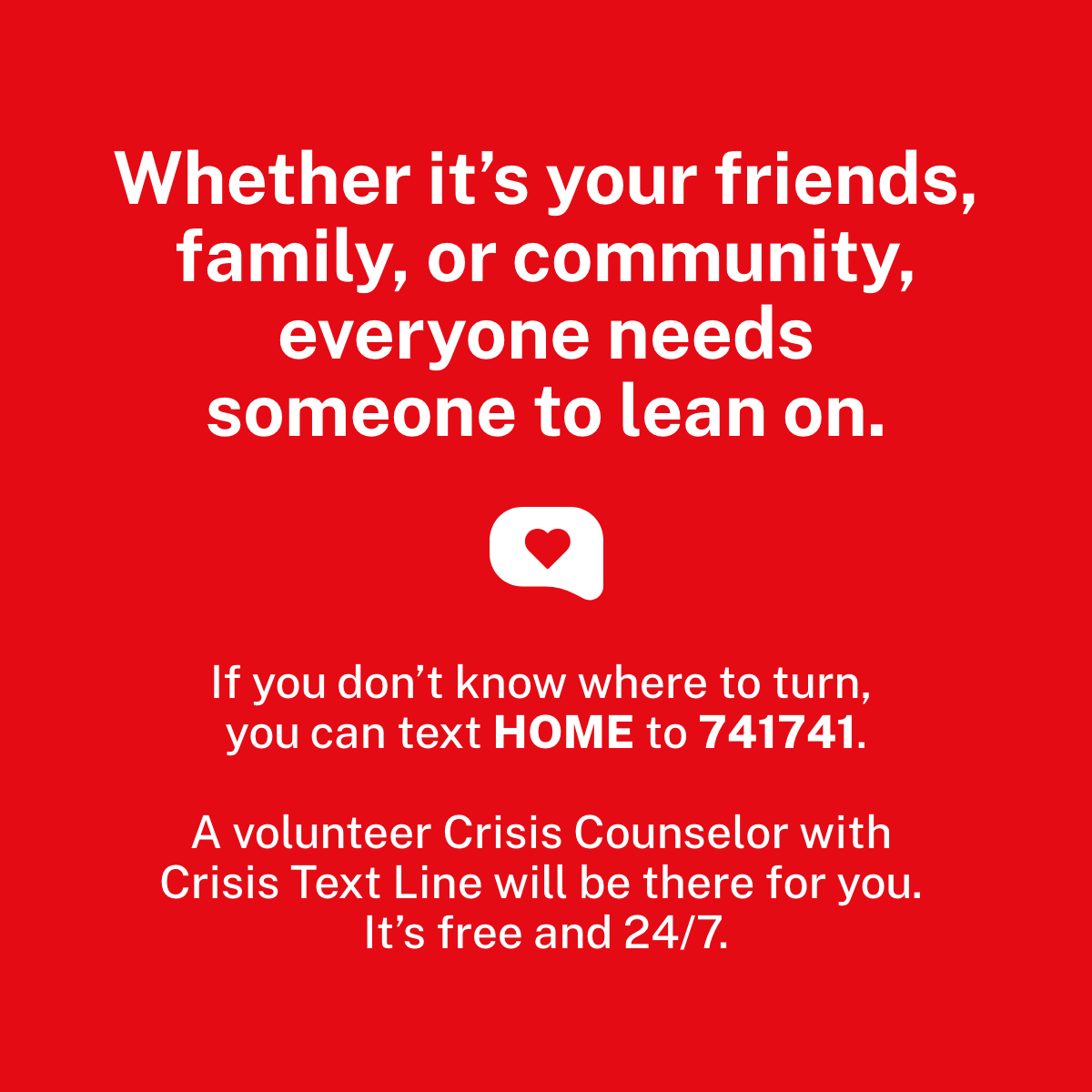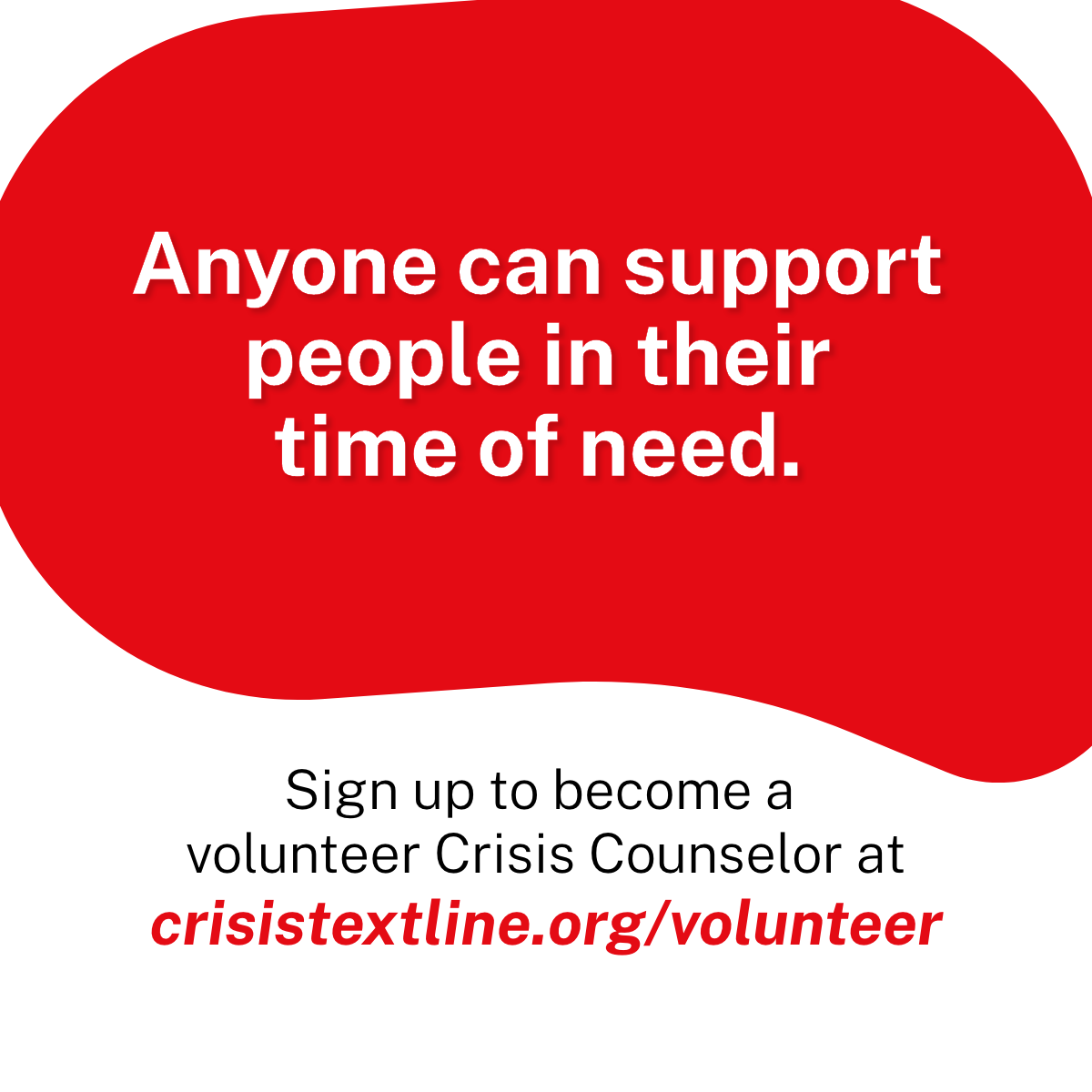Gun Violence


What is Gun Violence?
Text CONNECT to 741741 for free, confidential support from a trained volunteer Crisis Counselor, available 24/7.
Gun violence is a public health crisis that deeply affects the physical and mental health of our communities. If you’re feeling overwhelmed or struggling to find ways to cope, you’re not alone. Everyone has a different experience in traumatic events. And, whether it’s experiencing it firsthand, or learning about gun violence in the news, there is likely a strong emotional reaction that negatively impacts mental wellbeing.
Difficult emotions tied to gun violence can show up in many ways: grieving a personal loss, feeling triggered by violence in the news, or struggling with a sense of powerlessness over the systemic nature of the issue. As gun violence causes physical and emotional pain globally, it is important that you prioritize finding the skills to cope in your time of need.
We are here to support you. Text CONNECT to 741741 to reach a live, trained volunteer Crisis Counselor at no cost, 24/7.
Coping with Mass Shootings and Gun Violence #
Mass shootings are very traumatic, serious events. According to the American Psychological Association, trauma is an emotional response to a terrible event like an accident, crime, natural disaster, or experiencing or witnessing violence. If you are experiencing difficult emotions after an event involving a gun, youryour feelings are valid and you are never alone.
Some common reactions to trauma can include:
- Physical: Symptoms unrelated to a medical condition like stomach pain, muscle tension and headaches, change in sleep and/or eating patterns.
- Daily functioning: Trouble concentrating or feeling disengaged from activities you usually enjoy.
- Emotional: Increased fear, intrusive images or thoughts, guilt, or hyper vigilance.
- Spiritual/morality: Questioning the inherent good in people, wondering why something so terrible could actually happen.
- Social/occupational: Withdrawing from friends and family, calling out sick from work/school because of fear or other non-physical illness related reasons.
Many of us are in positions to care for others while also tending to our own needs, such as parents, teachers, first responders, mental health professionals, etc. Finding a balance that works for you is important, and it starts with validating your emotions.
If you’re struggling, here are some ways to cope:
- Reach out for support. You don’t have to go through difficult moments alone. Text CONNECT to 741741 to reach a live, trained volunteer Crisis Counselor. We’re here to listen and help.
- Listen to your body. Ask yourself ‘where am I feeling discomfort in my body?’ It helps some people to write down their answer to this question. Understanding where your body holds discomfort can help you better manage it.
- Ground yourself. Use this exercise: Name 5 things you can see, name 4 things you can feel, name 3 things you can hear, name 2 things you can smell and 1 thing you can taste.
- Trust yourself. If you have experienced trauma in your past, you likely used some coping skills. You are stronger than you might think and you know yourself best. Make a list of previously used coping skills and see if there are any of those you can try at this moment.
- Set boundaries. Take time to reflect on your own boundaries. Use this self awareness to determine when you are able to support others and when you are not. Take a break from the media to manage your exposure to traumatic stories.
- Seek mental health support. Find mental health resources in your area with the Substance Abuse and Mental Health Services Administration (SAMHSA)’s Treatment finder.
If you’re watching news about gun violence unfold, you may also be wondering how you can help. Here are some of the tips we share with our volunteer Crisis Counselors who are supporting people in crisis due to gun violence.
- Validate their feelings. If someone confides in you about how they’re struggling to cope, it’s important to validate and acknowledge how they’re feeling. Try phrases like, “I’m hearing you feel enraged and devastated by what happened,” or “I can hear how (infuriating, exhausting, heartbreaking) this is for you.”
- Help them find connection. If someone is in crisis, it may be helpful for them to find connection to their friends or family. But, you can’t be there for everyone all the time. Help them identify a shortlist of trustworthy people or resources to turn to who can give them the support and comfort they need.
- Encourage self-care. It can be hard for people to step away to take care of themselves. Show your support by helping them identify a few small things they can do to prioritize their mental health. This could include taking a break from the news, social media, going outside to get some fresh air, or listening to music.
With so much trauma and violence around us, it’s natural to feel sadness, grief, anxiety, and everything in between. Your feelings are valid. Crisis Text Line is here to listen and offer support. The bravest thing you can do is to reach out. Text CONNECT to 741741 to reach a live volunteer Crisis Counselor.
Find more resources on gun violence in America: #
National Childhood Traumatic Stress Network (in English and Spanish)
Center for Gun Violence Solutions at Johns Hopkins University
Everytown for Gun Safety Resources
Spread the Word – Provide 741741 to a Friend #
You never know who might need Crisis Text Line. Pass it on and tell the people in your life to text CONNECT to 741741 if they ever need support



Looking to make an impact? You can help change and save lives, one text at a time.
Volunteer Virtually at Crisis Text Line

